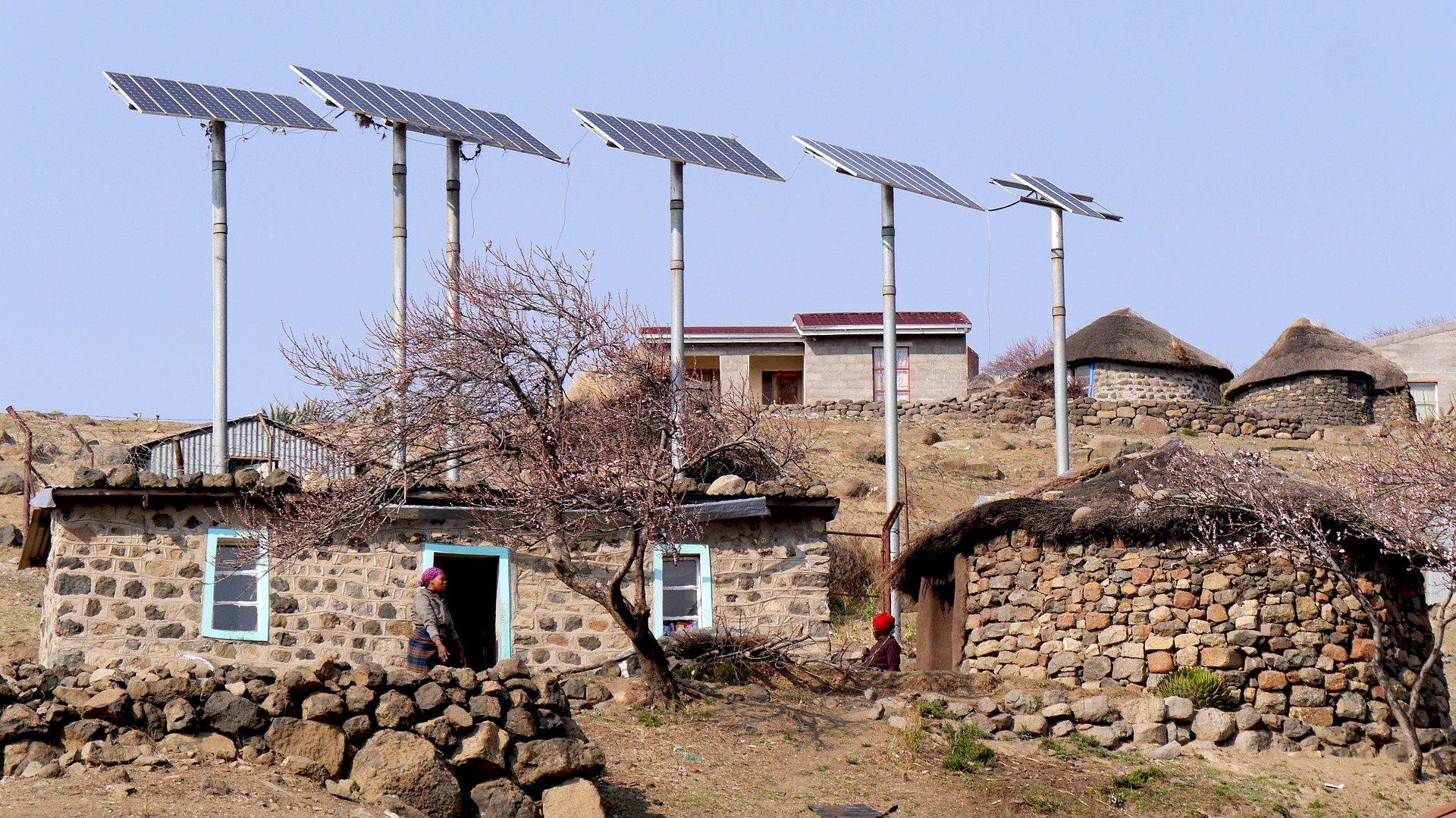The leading lights of wunderkind firm Mobisol, a Berlin start-up, left the company to found their own research institute. They still believe that the private sector has a key role in bringing solar power to Africa and the developing world. Paul Hockenos reports

Access to energy is still a very challenging in offgrid areas (Public Domain)
There was quite a bit of hype just a handful of years ago when start-ups with names such as Mobisol, Off Grid Electric, M-Kopa, and others appeared to have devised a formula for bringing electricity to Africa’s neediest – namely by selling it to them. But the poorest of Africa’s poor just couldn’t make the small, pay-as-you-go instalments reliably enough and in the volume that the young, indebted companies needed to sustain their pioneering model. Their investors, used to double-digit profits in short timeframes, became impatient and pushy. Restructurings, insolvencies, and bankruptcies brought expectations, and the idealistic start-ups, plummeting back down to earth.
The Berlin-based Mobisol was the first to venture into the world of off-grid, rural Africa with basic solar panels, small batteries, and LED light bulbs. Today, after declaring insolvency this spring, two of its chief protagonists, founder Thomas Gottschalk and his years-long business partner Thomas Duveau have opted for another route.
Their new brainchild is the Access to Energy Institute (A2EI), a think tank of sorts that in addition to research and analysis also helps develop products and business models that can further their original cause: namely to supply sub-Saharan Africa with affordable, clean energy that it can use to develop – and at long last step out of the poverty trap.
“We’re in existence to crack the tough nuts that the private sector won’t take on,” says Duveau, A2EI’s chief strategy officer, who calls the non-profit a collaborative research and development platform. “We’re one hundred percent independent of Mobisol. We’re doing something new, looking into the future. It’s in the spirit of public knowledge. Governments, aid agencies, companies, anyone who wants to can make use of this information.”
Duveau, scion of mixed French-German parentage, joined Gottschalk as Mobisol’s head of business development in 2013. Previous to that, from 2008 to 2013, Duveau served as officer for renewable energies at the environmental NGO WWF Germany. And prior to that, he worked on the topic of renewable energies for several private investments banks.
While at Mobisol, Duveau says, he saw the need for more public information and data in the energy access field. The fierce competition between the young companies from Germany, Canada, India, and the US precluded any cooperation that might advance the cause. Relevant data was jealously protected. So Duveau left Mobisol last year. He and Gottschalk went to IKEA Foundation, DOEN Foundation, Good Energies Foundation, and the Dutch development bank FMO to secure financing for the non-profit project of an energy access think tank.
The nut that the A2EI partners want to crack is not that of the poorest Africans but rather they aim to spur development by getting small African businesses on their feet with the likes of solar generators, solar welding machines, solar agricultural tools, and solar cooling solutions into their hands. The idea is get these tools of trade to Africans as fast as possible, not for the greatest amount of profit possible.
Their first subject was Nigeria. Africa’s most populous nation, with 191 million people, it has a glaring energy problem: the national grid is in abysmal shape, the average Nigerian’s power consumption is 3.4% of South Africa’s. Small diesel generators in private hands are there for when the public grid, if there is one, fails its customers, which is very often. A2EI estimates that 22 million such generators exist in Nigeria: an expensive, dirty, unhealthy means to generate energy. Nigerians spend €10 billion a year in government-subsidized gasoline costs for the ersatz power supply.
Clean energy, in particular solar power, is an obvious solution. But the cost – about €2,280 for a 1.5 kVA system — is simply too much for the small Nigerian entrepreneur. Even a lay-away model would mean payments too high for the business, and an eight-to-nine-year wait before the cost of the solar system broke even with the cost of that many years of gasoline costs. As it stands now, the average Nigerian businessperson just won’t go for it.
“They’re not used to looking that far into the future,” says Duveau.
A2EI, however, thinks it has found a path to make it work. It would require some big moves from the Nigerian state: for example the elimination of gasoline subsidies and repurposing them for renewable energy. Also, the state must enforce an existing ban on the bulk import of basic generators (in place for health and safety reasons.) Moreover, the cost of the solar panels could be lowered by the Nigerian state lowering or dropping its tariffs on imported panels. (It could also manufacture their own, suggests the report, without going into this option further.) Lastly, external aid agencies must supply low-interest loans to businesses. Add this up and factor in carbon credits and cost-lowering improvements on the tech side, and the price for the solar system drops to about €911 with a breakeven time of about five years.
This, says Duveau, is doable for the Nigerian businessperson.
A2EI’s first report concludes that “a strong coalition of partners could reduce the potential price of solar systems to the point required to move the needle in the transition away from gasoline generators.”
In other words: the original Mobisol pay-as-you-go model for Africans can work for African small businesses – with a leg-up from Africa’s governments and its international friends.
Now those players have to pick up the ball and run with it. They have a substantial to-do list, should they opt to take up A2EI’s recommendations. If it works, Nigeria’s clean energy revolution could be just a beginning for the 600 million Africans without reliable power.